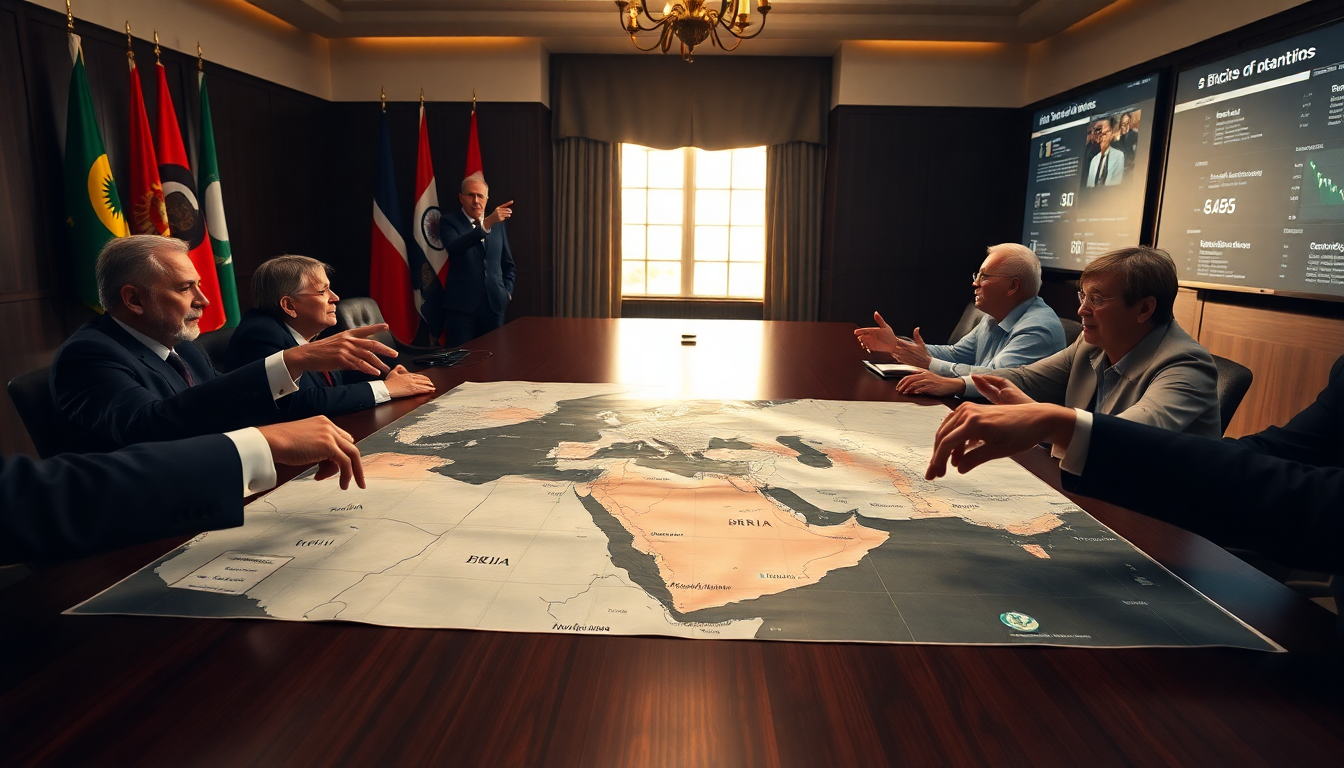Table of Contents
The geopolitical landscape of the Middle East is a hot topic these days, especially as tensions rise and humanitarian crises become more urgent. Recently, the BRICS nations—Brazil, Russia, India, China, and South Africa—voiced their deep concerns about the ongoing violence in the region. They’re stressing the need to break the cycle of conflict and work towards lasting peace. This united front not only showcases their commitment to global stability but also highlights the tricky nature of international diplomacy in these turbulent times.
A Unified Call for Peace and Stability
In a recent declaration, the BRICS nations came together to condemn the violence in the Middle East. Their message for peace underscores a growing awareness of the pressing need to tackle the various challenges causing humanitarian suffering and geopolitical turmoil. While they didn’t specifically name the United States, their statement subtly critiqued certain trade measures that many see as destabilizing for global trade. This hints at a larger worry about how economic policies can sometimes worsen existing conflicts.
The BRICS nations’ insistence on breaking the cycle of violence is particularly important, especially when you consider their previous joint statements that have consistently called for diplomatic solutions. Their rallying cry serves as a reminder of how crucial international cooperation is in resolving conflicts, particularly in regions where historical animosities and complicated geopolitical interests collide.
What This Means for Iran and the Peace Process
At the heart of these discussions is Iran, a country facing diplomatic isolation amid rising tensions with Israel. The BRICS declaration suggests a desire for a mediated peace process, advocating for a two-state solution to the Palestinian issue. While this is a hopeful approach, it’s not without its challenges, given Iran’s long-standing stance towards Israel and its push for stronger rhetoric in international discussions.
The call for nuclear safeguards and security measures during armed conflicts further emphasizes the bloc’s commitment to protecting both people and the planet. This point not only underlines the importance of international treaties but also calls for a robust response from the United Nations Security Council to effectively address the ongoing crises.
Looking Ahead: BRICS and Global Geopolitics
The proactive stance of the BRICS nations in addressing conflicts in the Middle East signifies a crucial moment in global diplomacy. As these nations strive to establish themselves as key players on the world stage, their collective voice could reshape how diplomacy unfolds in the region. Their focus on peaceful resolutions and cooperative strategies reflects a broader trend towards multilateralism in tackling complex global issues.
As we look to the future, the BRICS nations’ ability to influence peace processes will hinge on their capacity to harmonize their diverse interests and navigate the complex web of international relations. Their commitment to peace and stability in the Middle East, along with a focus on diplomatic solutions, could usher in a new era of international cooperation. However, it will demand ongoing effort and dedication from all parties involved. Are we ready to witness this transformation?


